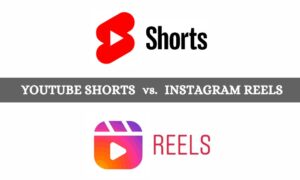Introduction:
In the vast landscape of digital marketing and website analytics, two powerful tools stand out: Google Search Console and Google Analytics. Both platforms offer valuable insights into website performance, user behavior, and search engine optimization (SEO).
However, they serve different purposes and provide unique sets of data. In this comprehensive blog, we will delve into the differences between Google Search Console and Google Analytics, exploring their features, functionalities, and the insights they offer.
Understanding these distinctions will help you harness the full potential of these tools to optimize your online presence and drive meaningful results.
Google Search Console: Unveiling Website Visibility:
Google Search Console, formerly known as Google Webmaster Tools, is a free service provided by Google. It primarily focuses on providing data and tools to improve a website’s visibility in search engine results pages (SERPs). Its core features include:
Performance Monitoring: Google Search Console offers valuable data on how your website performs in organic search. It provides insights into search queries, impressions, click-through rates (CTRs), and average search positions. This information helps you understand how users find your website and optimize your content accordingly.
Indexing and Crawling: The platform offers insights into how Google’s search engine crawls and indexes your website. You can identify indexing errors, submit sitemaps, and request the removal of specific URLs. It also alerts you to potential issues, such as mobile usability problems and security concerns.
Rich Results and Structured Data: Google Search Console allows you to monitor and optimize rich results, such as featured snippets, knowledge panels, and AMP (Accelerated Mobile Pages) pages. You can also test and validate structured data to enhance the visibility and appearance of your website in search results.
Google Analytics: Unveiling User Behavior and Website Performance:
Google Analytics is a robust web analytics tool that provides comprehensive insights into user behavior, website traffic, conversions, and marketing campaigns. Its core features include:
Audience Analysis: Google Analytics offers detailed demographic data, user interests, geographic information, and device categories. It helps you understand your website visitors, their preferences, and how they interact with your content.
Traffic Sources: The platform provides information about the sources of your website traffic, including organic search, direct visits, social media referrals, and paid campaigns. This data enables you to evaluate the effectiveness of different marketing channels and make informed decisions to optimize your marketing efforts.
Behavior Analysis: Google Analytics tracks user behavior on your website, such as page views, bounce rates, time on page, and conversion funnels. This data allows you to identify high-performing pages, optimize user experience, and improve conversion rates.
Key Differences and Complementary Insights
While both Google Search Console and Google Analytics offer valuable data, they serve different purposes and provide complementary insights. Here are the key differences between the two platforms:
Focus and Purpose:
Google Search Console focuses on the technical aspects of website performance, SEO, and visibility in search engine results. It helps you monitor indexing, identify errors, optimize search appearance, and enhance organic search performance.
On the other hand, Google Analytics is primarily concerned with user behavior, website traffic, conversions, and marketing effectiveness. It provides insights into audience demographics, traffic sources, behavior flow, and goal completions.
Data Availability and Scope:
Google Search Console offers data specifically related to search engine visibility, including search queries, impressions, clicks, and average search positions. It provides information about the organic search traffic that your website receives and how it ranks in search results.
In contrast, Google Analytics provides a broader range of data, including traffic sources, user behavior, demographics, and conversions. It offers in-depth insights into audience engagement, acquisition channels, and the effectiveness of marketing campaigns.
Data Collection Methods:
Google Search Console collects data directly from Google’s search engine and web crawling activities. It retrieves information about how your website appears in search results and how users interact with your organic search listings.
Google Analytics, on the other hand, collects data using JavaScript tracking code embedded in your website. It captures user interactions, pageviews, conversions, and other metrics as visitors navigate through your web pages.
Integration and Data Sharing:
Google Search Console and Google Analytics can be linked together to share data and gain a more comprehensive understanding of website performance. By integrating the two platforms, you can combine search engine visibility data with user behavior data, allowing for deeper analysis and insights.
Conclusion:
Google Search Console and Google Analytics are powerful tools that offer distinct perspectives on website performance, user behavior, and search engine optimization. Understanding their differences is crucial for leveraging their strengths and harnessing their combined power to optimize your online presence effectively.
While Google Search Console focuses on search engine visibility and technical aspects, Google Analytics provides a broader range of data on user behavior, traffic sources, and conversions. By utilizing both platforms and combining their insights, you can gain a comprehensive understanding of your website’s performance, enhance SEO strategies, improve user experience, and drive meaningful results in the digital landscape.
You may also like the best digital marketing institute in Mumbai.












